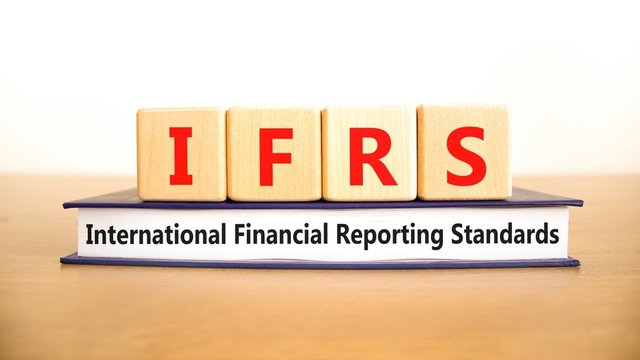
What are IFRS standards?
Edited on Feb. 22, 2024

International Financial Reporting Standards (IFRS) are fundamental in the accounting field. They provide specific guidelines for the preparation of understandable, relevant, reliable and comparable financial statements. These standards are essential for companies operating in international markets, as they establish a common framework.
By adopting and complying with these IFRS, companies can enhance their credibility and reputation in international financial markets. If you are looking to work in the business or financial sector, knowing the IFRS is key – something you can become familiar with by studying a Master Financial Management or a Master of Business Economics at Universidad Europea.
What are IFRS and what are they for?
IFRS are a set of internationally adopted accounting standards. These standards are designed to ensure uniformity in financial reporting, which facilitates the comparison of financial statements of different companies and promotes confidence in financial markets on an international scale.
IFRS serve several crucial purposes in the financial and business world:
- Comparability: they establish a common accounting language, enabling accurate comparison of financial statements across companies and sectors internationally.
- Transparency: they promote transparency in financial reporting, which increases the confidence of investors and other stakeholders in the accuracy of the data presented.
- Foreign investment: they facilitate foreign investment by providing a reliable and consistent framework for assessing the financial performance of companies in different countries.
- Stability in financial markets: they contribute to stability and integrity in financial markets by ensuring consistency in financial reporting.
Who issues IFRS?
The International Accounting Standards Board (IASB) is the body responsible for issuing and updating IFRS. This independent body is composed of internationally renowned accounting experts, who collaborate in the development and revision of the standards so that they remain up to date and relevant in an ever-changing business environment.
Differences between IAS and IFRS
International Accounting Standards (IAS) were the set of accounting standards prior to the widespread adoption of IFRS. Although the two standards share many similarities, there are key differences:
- Evolution and issuance: the IASs were issued by the International Accounting Standards Committee (IASC), while IFRSs are developed by the IASB, a more independent and global international body.
- International scope: as IFRS have become the most popular global standard, IAS have been superseded.
Examples of IFRS
Some of the most relevant IFRSs include:
- IFRS 9, financial instruments: this standard establishes principles for the recognition, measurement and presentation of financial instruments, providing guidance on how companies should classify and measure their financial assets and financial liabilities.
- IFRS 16, leases: IFRS 16 significantly changed the accounting treatment of leases, requiring lessees to recognise virtually all leases on their balance sheet, which affects the presentation of financial statements.
- IFRS 15, revenue from contracts with customers: this standard addresses the accounting for revenue from contracts with customers, providing principles for determining when and how to recognise revenue.
As you can see, financial reporting and data analysis can transform businesses and guide fundamental business decisions. Understanding IFRS and their impact on the financial world is just the first step.
If you are interested in this field, Universidad Europea offers a wide range of Masters in Business and Technology where you can choose the specialisation that most interests you.
Article published on Dec. 19, 2023